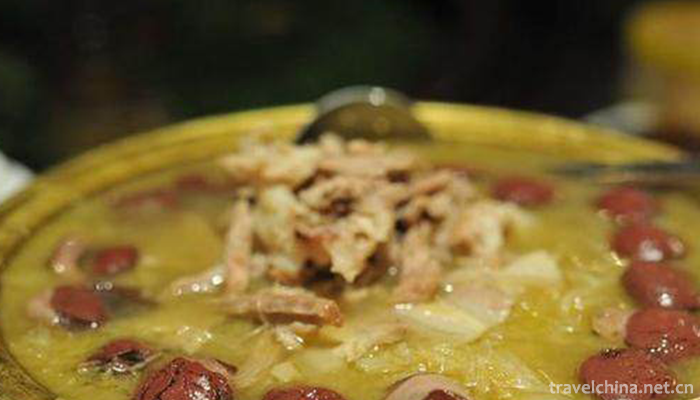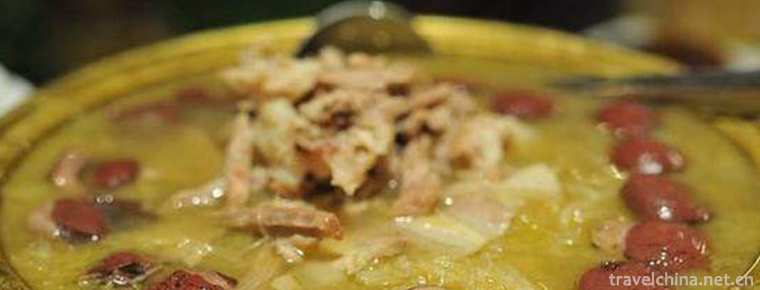Traditional cooking techniques of Liao cuisine
Traditional cooking techniques of Liao cuisine
In April 2016, "Liao cuisine traditional cooking skills" was approved by the State Council as a national intangible cultural heritage, Liao cuisine became the first major cuisine department in the country to become a national intangible cultural heritage project.
Launching ceremony
On April 16, 2016, provincial, municipal and district leaders issued plaques for the protection unit of the national intangible cultural heritage "Liao Cuisine Traditional Cuisine Skills" for Lumingchun Hotel, and held a live inheritance and launching ceremony of "Liao Cuisine Traditional Cuisine Skills".
"Traditional cooking skills of Liao cuisine" has been approved by the State Council as a national intangible cultural heritage. Liao cuisine has become the first national intangible cultural heritage project in major cuisine departments.
Liao cuisine traditional cooking skill is a kind of traditional skill which was approved by the State Council in 2014 and listed in the fourth batch of national intangible cultural heritage list.
Historical sources
At the meeting, the leader of the non-legacy Department of Liaoning Provincial Department of Culture said: "We should carry forward the traditional culture, protect, inherit and promote the traditional cooking skills of Liao cuisine, so that Liao cuisine, the first national non-legacy project in China, will become a shining business card on the map of Liao and Shen."
Liao cuisine has a history of more than 3000 years. It is a local cuisine based on the national characteristics, regional characteristics, dietary customs and cooking techniques of Liaoning. It is recognized by the world for its long history and skills. Today, Liao cuisine has become the first major cuisine department in the country to become a national intangible cultural heritage project, which is an important milestone in the development of Liaoning catering culture. Liaoning will establish a team of teachers with Lumingchun as the main leader, Liao cuisine as the representative of traditional cooking skills, and Liao cuisine as the inheritor. Liao cuisine traditional cooking skills will be radiated to Liaoning cities, and 31 Liao cuisine heritage shops will be established. Liao cuisine representative inheritors will regularly conduct counseling, demonstration and standardize Liao cuisine activities in various provincial and municipal heritage shops. Establish a contingent of Liao cuisine inheritance and learning to form a chain of skills. On the same day, Liaoning catering enterprises also launched the "Home-loving, Liaoning cuisine, skill-passing catering business integrity management initiative" to jointly advocate integrity management, give full play to the strength of everyone in the catering industry.


-
1.Mount Tianzhu Scenic Area
Tianzhu Mountain Scenic Spot, located in the west of Qianshan City, Anqing City, Anhui Province, is known as "the first mountain in the Yangtze River and Huaihe River" for its main peak
Time 2018-12-08 -
2.Linhe Yellow River National Wetland Park Inner Mongolia
Inner Mongolia Linhe Yellow River National Wetland Park is located in Linhe District, Bayannaoer City, Inner Mongolia Autonomous Region, with a total area of 4637.6 hectares. The functional zoning map
Time 2018-12-26 -
3.Jinxiangshan Paradise
Jinxiang Mountain Scenic Spot in Jinan, Shandong Province, is located in the southern mountainous area of Jinan. It is endowed with unique topography, landform and rich forest resources
Time 2019-01-29 -
4.Zhanqiao
Qingdao Trestle Bridge is one of the scenic spots of Qingdao Seaside Scenic Spot. It is the first national scenic spot announced by the State Council in 1982, and also the first national AAAA-level sc
Time 2019-03-09 -
5.Production Techniques of Tibetan Mineral Plant Pigments
Since the emergence of human beings, mineral pigments have been accompanied by human beings. Mineral pigments were first used to draw murals
Time 2019-04-09 -
6.Tea ceremony
Tea art is a kind of culture. On the basis of Chinese excellent culture, tea art has absorbed and borrowed other art forms extensively, and expanded to literature, art and other fields
Time 2019-04-15 -
7.Production Techniques of Lhasa Jiami Water Mill
Jiami Water Mill was built in the 17th century A.D. It shows the outstanding ability of Tibetan people in mechanical manufacturing and grain processing. It makes full use of natural spring water to gr
Time 2019-05-10 -
8.Mongolian Humai
Humai, also known as laryngeal singing, double singing, multi-voice singing or Haolinchao, is a singing method of many ethnic groups around Altai Mountains, not unique to the Mongolian people.
Time 2019-06-03 -
9.Suzhou opera
On June 7, 2008, Hangzhou and Shaoxing City of Zhejiang Province jointly declared "Spring Spring Spring Spring Packing" which was approved by the State Council to be included in the second b
Time 2019-06-18 -
10.Yangju Opera
Yangju, a local traditional drama in Yangzhou City, Jiangsu Province, is one of the national intangible cultural heritage. Yangzhou Opera, formerly known as "Weiyang Opera", is popular in Ya
Time 2019-07-10 -
11.Wuliangye distillery
Wuliangye Group Co., Ltd. is located at the intersection of Jinsha River and Minjiang River, the first city of the Yangtze River -- "Jiudu" Yibin. It is a modern corporate group with Wuliangye series liquor production as its main business
Time 2020-10-16 -
12.Yibin water resources
Yibin city produces 614500 cubic meters of water per square kilometer per year. In addition to the amount of water from various rivers in the city, the city has a total annual water volume of 242.84 billion cubic meters, and the average annual water occupatio
Time 2020-12-18